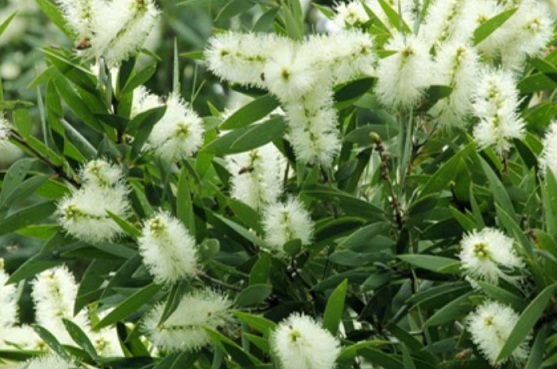Indonesian Scientists Explore the Anti-Inflammatory Potential of Melaleuca Cajuputi Extract in Fighting COVID-19
Nikhil Prasad Fact checked by:Thailand Medical News Team Nov 30, 2024 4 months, 1 week, 6 days, 12 hours, 17 minutes ago
Medical News: The COVID-19 pandemic, caused by the SARS-CoV-2 virus, has profoundly impacted global health, with severe cases often linked to an overactive immune response known as a cytokine storm. This immune phenomenon involves the excessive release of pro-inflammatory cytokines, such as interleukin-6 (IL-6), leading to complications like acute respiratory distress syndrome (ARDS) and multi-organ failure.

I
ndonesian Scientists Explore the Anti-Inflammatory Potential of Melaleuca Cajuputi Extract in Fighting COVID-19
In a study conducted by researchers from the University of Indonesia, Universitas Lampung, and the Indonesian Medical Education and Research Institute, the anti-inflammatory properties of Melaleuca cajuputi were explored. The plant, known for its antimicrobial and antioxidant benefits, is traditionally used in Southeast Asia for its therapeutic properties. This
Medical News report delves into their findings, emphasizing the potential of this natural extract as a treatment for COVID-19-related inflammation.
Methodology of the Research
The research involved extracting active compounds from Melaleuca cajuputi leaves using ethanol. These compounds were profiled using advanced techniques like liquid chromatography-mass spectrometry (LC/MS) and gas chromatography-mass spectrometry (GC/MS). The primary objective was to investigate their interaction with IL-6 through computational simulations, including molecular docking and dynamic simulations.
Protein-protein interaction (PPI) analyses identified key proteins involved in the COVID-19 cytokine storm. The team focused on IL-6 due to its central role in inflammation and the storm mechanism. This approach provided insights into how Melaleuca cajuputi compounds might mitigate these severe immune responses.
Key Findings from the Study
The study highlighted several active phytochemical compounds from Melaleuca cajuputi, including pinostrobin chalcone, hexadecanoic acid, and globulol. Among these, pinostrobin chalcone demonstrated the strongest binding affinity to IL-6. Molecular docking results revealed that pinostrobin chalcone could effectively block IL-6 activity by binding to its active site, disrupting its interaction with receptors essential for pro-inflammatory signaling.
Notably, pinostrobin chalcone's binding affinity surpassed that of dexamethasone, a standard anti-inflammatory drug used in treating severe COVID-19 cases. This finding suggests that Melaleuca cajuputi compounds, particularly pinostrobin chalcone, could serve as potent alternatives or complements to existing treatments.
Mechanism of Action
The mechanism behind Melaleuca cajuputi's anti-inflammatory effects lies in its ability to inhibit IL-6 signaling pathways. By blocking the interaction of IL-6 with its receptors, the compounds prevent the activation of pathways responsible for cytokine production and systemic inflammation. This inhibition reduces the risk of cytokine storm, offering a promising strategy to
manage severe COVID-19 symptoms.
Implications for Future Research
The findings open new avenues for developing plant-based therapies targeting inflammatory pathways. However, further studies are needed to validate these results in clinical settings and explore potential side effects. Understanding how these compounds interact with other inflammatory mediators could enhance their therapeutic efficacy.
Conclusion
The study demonstrates the potential of Melaleuca cajuputi extract, particularly pinostrobin chalcone, as an effective anti-inflammatory agent against COVID-19. By targeting IL-6, a critical driver of the cytokine storm, these natural compounds could reduce complications associated with severe cases. The findings highlight the importance of exploring traditional medicinal plants for innovative solutions to modern health challenges.
The study findings were published in the peer-reviewed International Journal of Inflammation.
https://onlinelibrary.wiley.com/doi/10.1155/ijin/5568294
For the latest on Herbs and Phytochemicals, keep on logging to Thailand
Medical News.
Read Also:
https://www.thailandmedical.news/news/phytochemicals-from-roots-of-lespedeza-bicolor-show-promise-against-sars-cov-2
https://www.thailandmedical.news/news/italian-study-finds-that-aged-garlic-extract-reduces-inflammatory-genes-induced-by-covid-19-infections-or-vaccines
https://www.thailandmedical.news/news/tawa-tawa-plant-extract-shows-promise-in-easing-fatigue-and-boosting-energy-for-post-covid-patients
https://www.thailandmedical.news/articles/herbs-and-phytochemicals
